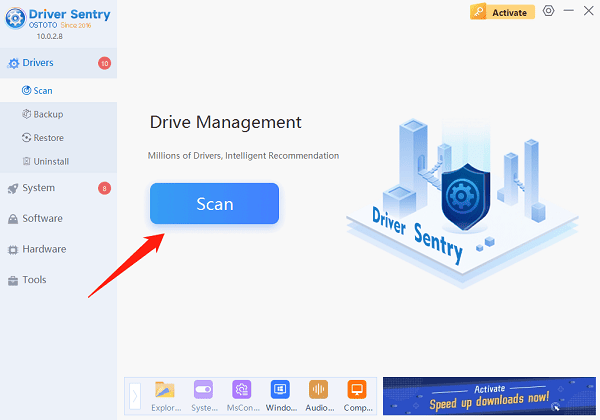
When using a computer, you may sometimes notice a "ghosting" effect on the screen, which not only disrupts the visual experience but can also lead to eye strain over time. So, what causes ghosting on a monitor, and how can it be fixed? This article explains the causes of ghosting and provides simple solutions to help you resolve this frustrating issue.
Common Causes of Monitor Ghosting
1. Signal Transmission Issues
The monitor receives signals from the computer via a data cable. If the cable is loose or worn out, it can cause unstable signal transmission, leading to ghosting.
2. Incorrect Refresh Rate
The refresh rate refers to how many times per second the monitor refreshes the image, usually measured in Hertz (Hz). If the refresh rate is too low, the display may become blurry or ghosting may occur.
3. Resolution Mismatch
If the monitor's optimal resolution does not match the computer's output resolution, the image may appear distorted or show ghosting.
4. Graphics Driver Issues
Graphics drivers have a significant impact on display performance. Outdated or improperly installed drivers can cause display abnormalities, including ghosting.
5. Monitor Aging
If the monitor has been in use for a long time, the internal display components may have worn out, potentially leading to ghosting and other display issues.

Effective Solutions to Fix Ghosting
1. Check and Replace the Data Cable
First, check whether the signal cable connecting the monitor to the computer is loose. Try unplugging and reconnecting the cable to ensure a firm connection. If the cable is old or damaged, replace it with a new one. It's recommended to use a high-quality HDMI or DisplayPort cable to ensure stable signal transmission.
2. Adjust the Monitor's Refresh Rate
In Windows, right-click on the desktop, select "Display Settings" > "Advanced Display Settings," and make sure the refresh rate is set to the optimal value (usually 60Hz or higher). After adjusting the refresh rate, check if the ghosting improves.
3. Match the Resolution
In "Display Settings", select the recommended resolution for the monitor. Each monitor has an optimal resolution, and adjusting it to the correct setting can improve the display quality. If you're unsure about the best resolution, the "Recommended" label in the display settings can guide you.

4. Update Graphics Drivers
Outdated or damaged graphics drivers can lead to abnormal display effects like ghosting. Tools like "Driver Sentry" can help you update drivers. Driver Sentry automatically scans your system for hardware issues and recommends the best driver versions for your graphics card. This makes it easy to update drivers and avoid the hassle of manual installation. Additionally, Driver Sentry can help you regularly check the drivers of other hardware components to maintain system stability and compatibility.
To update your drivers with Driver Sentry:
Visit the Driver Sentry website to download and install the software.
Open Driver Sentry and click the "Scan" button to detect any driver issues.

In the scan report, click "Upgrade" next to your graphics card, and the software will automatically update all outdated or missing drivers.

5. Try Connecting to Another Monitor
If none of the above methods work, try connecting your computer to a different monitor to see if the ghosting persists. If the problem disappears with a new monitor, it may be an issue with the original monitor, possibly due to hardware aging or the need for professional repair.
By following these steps, you can quickly resolve ghosting issues on your monitor. If you face any driver-related problems, "Driver Sentry" can help you easily detect and fix them.
See also:
How to fix colored lines on monitor
How to Fix Windows Black Screen Freeze Issues
How to Fix Screen Flickering Problem in Windows
6 Ways to Fix the Green Screen of Death in Windows